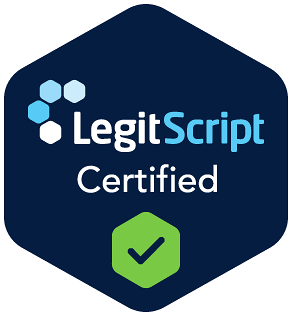Our dedication lies not just in treating symptoms but in addressing the root causes, offering a holistic approach that integrates the best of therapeutic practices with the warmth of community support.
The Role of Medication Management in Addiction Treatment

The Role of Medication Management in Addiction Treatment
Addiction is a complex disease that requires careful treatment with respect towards people’s individual needs, as well as what is generally accepted to work. Today we’ll be looking at what the role of medication management is in an effective addiction treatment program.
What is Medication Management in Addiction Treatment?
Medication management is a system of treatment utilized by doctors, pharmacists, and psychiatrists that focuses on the pharmaceutical side of addiction treatment, which is typically less discussed than traditional modes of treatment involving therapy or wellness oriented practices such as meditation, CBT, trauma informed yoga, etc.
It is a supplement or addendum to many addiction treatment plans as the relationship between medication and addiction is one that was once fraught with distrust for drugs and the necessity by which a person suffering from addiction should be utilizing them.
Modern psychiatry and psychology indicate that this fear was misplaced. Just because a person has had a substance use disorder involving drugs, does not mean that medication has no place in an addict’s life.
What medication management strives to do is provide non-narcotic solutions to treat anxiety, depression, and other mental health conditions. At Encore, we believe in a holistic approach to addiction treatment in VA. Our medication management is focused on different aspects of health–not just curbing withdrawal symptoms and reducing cravings. Nutrition and mental health concerns are equally valid.
One of the main functions of medication management is to provide a safe and structured environment in which medications that are used to treat opioid and alcohol use disorders and the underlying substance dependence can be prescribed or maintained.
- Buprenorphine
- Methadone
- Naltrexone
- Vivitrol
These medications largely perform the task, but operate somewhat differently. Buprenorphine and Methadone both work to suppress cravings for opioids while also blunting the symptoms of withdrawal. Buprenorphine is typically in pill form and Methadone comes in a variety of administration methods.
Naltrexone works using a different mechanism of treatment. Instead of simply suppressing cravings and blunting withdrawal symptoms, Naltrexone blocks the brain’s opioid receptors. The concept is similar to the medication Varenicline, which is a smoking cessation aid that blocks the effect of nicotine.
The efficacy of these medications is rooted in the idea that while cravings may exist, the means to satisfy them is taken away through blocking the necessary receptors in the brain. This ideally weakens the brains association between the substance and the reward.
Substance Use Disorders and Comorbidity
When it comes to addiction treatment, Encore strongly believes in utilizing an evidence based mindset. Comorbidity with substance use disorders has been a well-documented area of research. Comorbidity refers to cases where individuals are suffering from two or more illnesses simultaneously. Typically, this is in reference to mental health disorders such as an anxiety disorder or clinical depression.
This comorbidity in addiction presents a chicken and egg scenario—did a person develop a substance use disorder because of their struggle to cope with anxiety or clinical depression? Or was it their substance dependence issues that created the circumstances that would allow depression and anxiety to flourish unchecked?
It can be difficult to say, and more often than not when assessing patients, we find that both issues are deeply enmeshed with each other. This is the true definition of comorbidity, two issues that feed into one another negatively.
Feeling large amounts of anxiety may cause people to turn to drinking for relief, and the continual abuse of alcohol as a maladaptive coping mechanism can lead to increasing levels of repressed anxiety bubbling to the surface.
Addiction Treatment VA
Medication management is an important facet of addiction treatment that perhaps gets a bit less spotlight than traditional aspects of treatment such as therapy and counseling. However, it is a crucial service that allows people suffering too greatly from cravings, withdrawal symptoms, or are on the verge of relapse, to stay on track and focus on the main parts of a quality treatment protocol, such as individual or group therapy.
For more information, contact Encore today with any questions or concerns you have about our programs. We look forward to hearing from you soon.
Let Us Support You On Your Recovery Journey!
Copyright 2026 Encore Outpatient Services | All Rights Reserved



